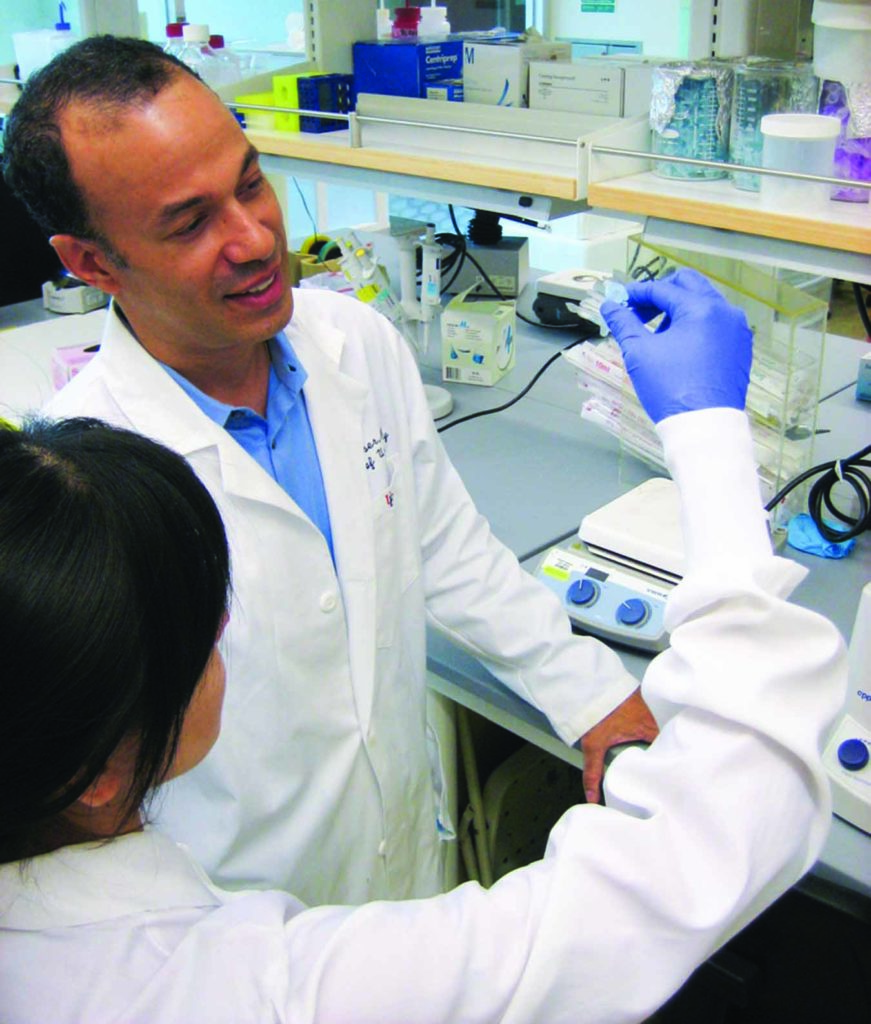UH’s Role in the Fight Against Bladder Cancer
For patients afflicted with bladder cancer, a new drug treatment could be around the corner thanks to a national clinical drug trial being conducted by the University of Hawai‘i Cancer Center (UH Cancer Center).
Developing novel effective treatments for bladder cancer is important because it has a very high rate of recurrence, making it one of the most expensive cancers to treat on a per patient basis. Up to 70 percent of patients with non-muscle invasive bladder cancer may develop cancer recurrence, making it one of the most prevalent cancers in the U.S.
Nationally there are 74,000 new cases of bladder cancer and an estimated 16,000 deaths every year, according to the National Cancer Institute. It is ranked in the top five cancers for men in the U.S. The disease occurs more often in men than women.
“The medical community does not yet have an effective means of preventing bladder cancer from recurring with currently available treatments,” said Dr. Charles J. Rosser, a UH Cancer Center urologist and principal investigator of the trial. “Finding an effective treatment would go a long way toward preventing more people from suffering from this disease.”
At the center of attention is the drug ALT-803, an interleukin 15 superagonist complex, created by Florida-based Altor BioScience Corp. In early studies, ALT-803 showed strong potential to stimulate the body’s immune system and create a protective and long-lasting effect against tumors when paired with the immunotherapy drug Bacillus Calmette-Guérin (BCG), which is currently used for the treatment of bladder cancer.
Phase I of the study with about dozen participants was completed in summer 2015 and showed that the trial was well-tolerated and demonstrated the recommended dose to be tested in Phase II. At least 20 percent of the participants were expected to have a recurrence of bladder cancer by now, but so far, no patients have. Overall, bladder cancer has a high recurrence rate of more than 50 percent.
Phase II of the study, approved by the Institutional Review Board (IRB) and Food and Drug Administration (FDA), commenced on October 2015. With about 124 patients mostly from Hawai‘i, the goal of this phase is to show improved outcomes for cancer patients and to move ALT-803 one step closer to FDA approval for use in the treatment of bladder cancer.
“The last time the FDA approved a drug for bladder cancer was almost two decades ago,” said Rosser, director of the UH Cancer Center’s Clinical Trials Office. “BCG has been the main drug used to treat the disease since the ‘80s, but we may finally be able to move the field forward and get better drugs to patients.”

